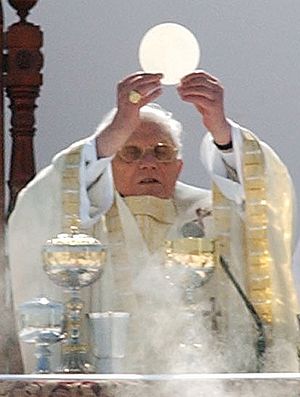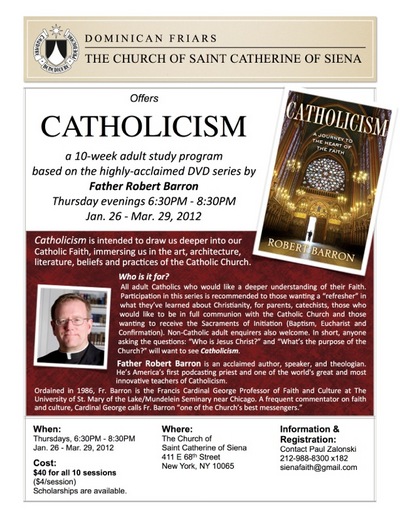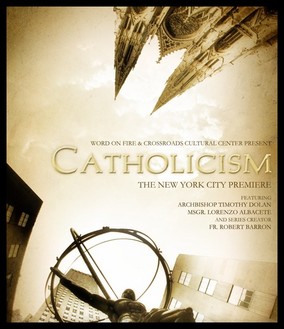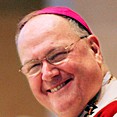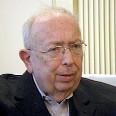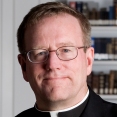One of the blogs I read with some frequency is the blog, Domine, da mihi hanc aqua!, written by a Dominican Friar of the Province of Saint Martin de Porres, Father Philip Neri Powell. I recommend it, after reading the Communio blog. His blog post for today provides a good examination for. Tonight, people came to the parish to watch the second video of Father Robert Barron’s “Catholicism” project. In many ways what the friar says below and what Father Baron did in the video cohere. Read Father Philip wrote (in part) and watch “Catholicism.”
The Catechism teaches us that “the Word became flesh for us in order to [1] save us by reconciling us with God. . .[2] so that thus we might know God’s love. . .[3] to be our model of holiness. . .[4] to make us ‘partakers of the divine nature'”(457-60). Let’s break this down even further. Since we are alienated from God by our sin and God wills that we be reconciled with Him, our sins must be expunged, washed away. With the birth, death, and resurrection of the Christ, our sins are forgiven. For God’s forgiveness to take hold in our lives, we must receive His forgiveness as a gift–an unmerited grace, freely given. When we receive His forgiveness as a gift, we come to know the Father’s love; that is, His love is made manifest, given another body and soul–our own. With a body and soul brimming with the Father’s love, we begin a life of holiness, a life set apart from the world while living in the world. A life of holiness looks, sounds, and feels like the life that Jesus himself led: a life of mercy, sacrifice, love, perseverance, and courage. Living such a life–steeping ourselves in God’s enduring love–trains us to participate more fully in His divine nature, making us both human and divine, and perfectly so in His presence.
Continue reading Brimming over with the Father’s love
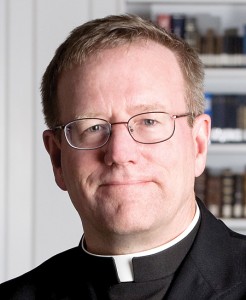 In a 55 minute presentation Father Robert Barron takes a keen review and analysis of Gaudium et Spes for the 5oth anniversary of Vatican II.
In a 55 minute presentation Father Robert Barron takes a keen review and analysis of Gaudium et Spes for the 5oth anniversary of Vatican II.